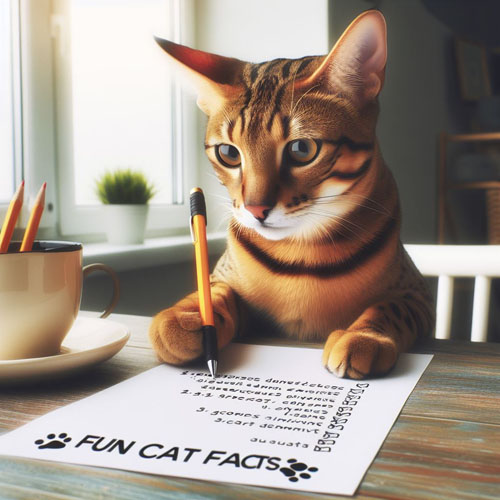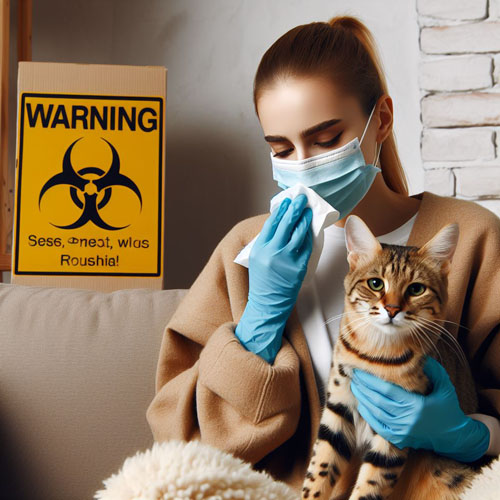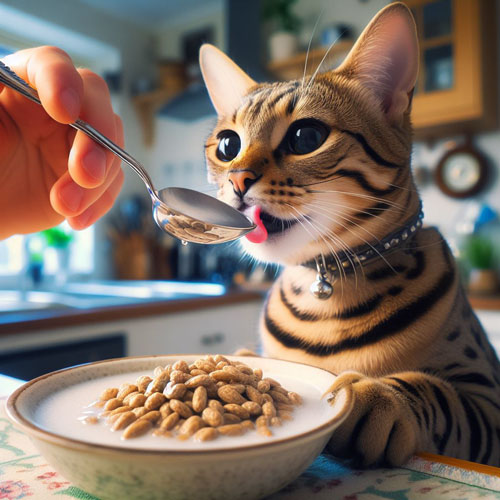Savannah Cats: Understanding Poison Control
Safeguarding Savannah Cats: Understanding Poison Control and the ASPCA Animal Poison Control Center
Savannah cats, known for their striking appearance and unique heritage, have become popular pets among feline enthusiasts. As responsible owners, it’s crucial to be aware of potential dangers that could harm these majestic creatures. Accidents happen, and in the event of a poisoning emergency, the ASPCA Animal Poison Control Center (APCC) stands as a reliable lifeline, providing assistance 24/7, 365 days a year.
The ASPCA Animal Poison Control Center: The ASPCA Animal Poison Control Center plays a pivotal role in safeguarding the well-being of pets across the nation. With a dedicated team of experts, including veterinarians and toxicologists, the center operates around the clock to offer immediate assistance in cases of potential poison exposure.
If you suspect your Savannah cat has ingested a harmful substance, the APCC’s phone number, (888) 426-4435, becomes a crucial point of contact. This hotline is available to pet owners facing emergencies, offering timely advice and guidance to mitigate the risks associated with poison ingestion.
Recognizing Poisoning Symptoms: Savannah cat owners should be vigilant in identifying potential poisoning symptoms. Cats, by nature, are curious creatures, and their exploration may lead them to encounter substances that pose a threat. Common signs of poisoning in cats include vomiting, diarrhea, lethargy, difficulty breathing, seizures, and changes in behavior.
It’s imperative for owners to act swiftly when observing any abnormal behavior or symptoms. The sooner the APCC is contacted, the better the chances of preventing severe consequences.
Common Household Poisons for Savannah Cats: Savannah cats, being indoor pets, may come into contact with various household items that could be toxic to them. Awareness of potential dangers is crucial for preventing accidental poisonings. Some common household poisons for cats include:
- Plants: Certain houseplants, such as lilies, are highly toxic to cats. Ingesting even a small amount can lead to severe kidney damage.
- Human Medications: Medications like acetaminophen and ibuprofen can be lethal to cats. Always store medications in secure locations out of your cat’s reach.
- Cleaning Products: Household cleaners, especially those containing chemicals like bleach and ammonia, can be harmful. Ensure that areas where your cat roams, are free from accessible toxic substances.
- Foods: Some human foods, such as chocolate, caffeine, onions, and garlic, are toxic to cats. Avoid sharing your meals with your Savannah cat to prevent accidental ingestion.
The Role of the APCC in Poison Emergencies: When faced with a potential poisoning situation, contacting the ASPCA Animal Poison Control Center is crucial. The center’s experienced staff will guide owners through a series of questions to assess the severity of the situation. They may recommend immediate home care or advise a visit to the veterinarian based on the circumstances.
It’s important to note that a consultation fee may apply for using the APCC’s services. However, the expertise and guidance provided can be invaluable in protecting your Savannah cat’s health.
Preventive Measures for Savannah Cat Owners: While the APCC serves as a vital resource in emergencies, proactive measures can significantly reduce the risk of poison exposure for Savannah cats. Consider the following preventive steps:
- Pet-Proofing: Create a safe environment by pet-proofing your home. Keep potentially harmful substances out of reach and secure cabinets containing cleaning products and medications.
- Knowledge is Power: Familiarize yourself with common household poisons for cats. This awareness enables you to make informed decisions about the items within your home.
- Regular Vet Check-ups: Schedule regular veterinary check-ups for your Savannah cat. These visits allow the vet to monitor your cat’s health and address any concerns before they escalate.
Conclusion: Savannah cat ownership comes with the responsibility of ensuring their safety and well-being. The ASPCA Animal Poison Control Center serves as an invaluable resource for owners facing poison emergencies, offering timely assistance to mitigate risks. By being proactive, recognizing potential dangers, and taking preventive measures, owners can create a secure environment for their majestic feline companions. Together, responsible ownership and the support of the APCC contribute to the overall health and happiness of Savannah cats nationwide.
Keywords: Savannah Cats, Animal Poison Control, ASPCA, Poisoning Symptoms, Household Poisons for Cats





